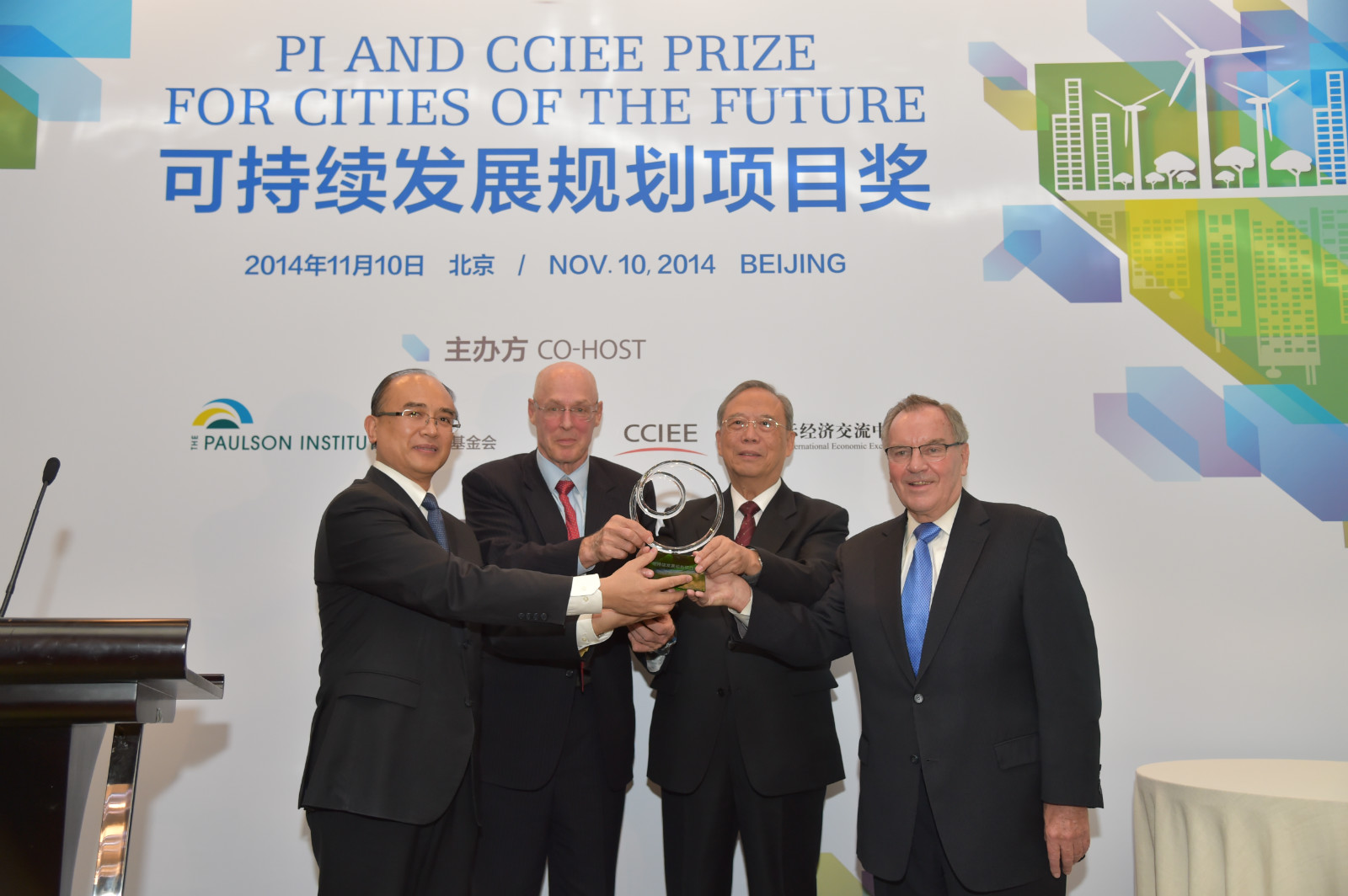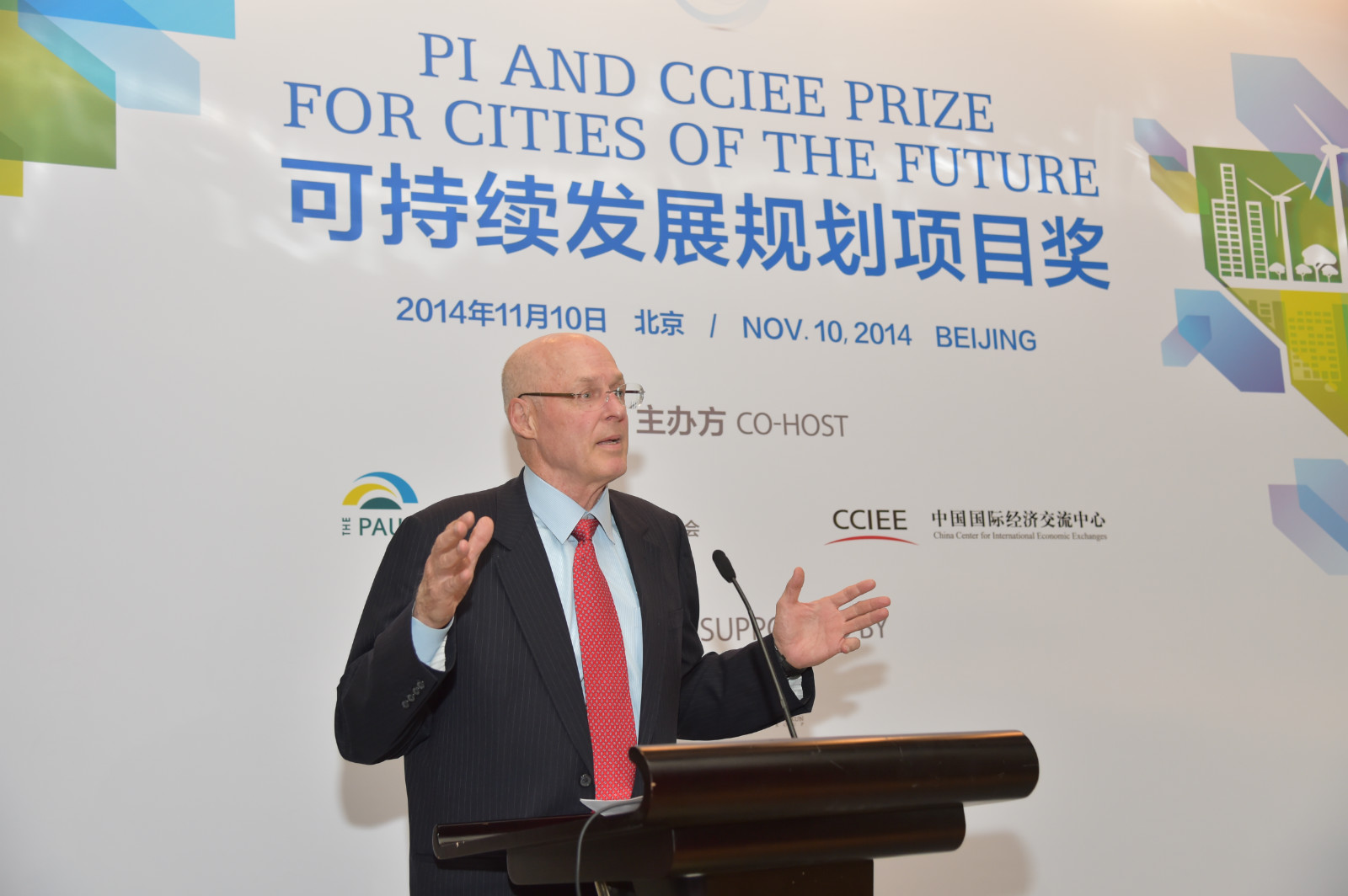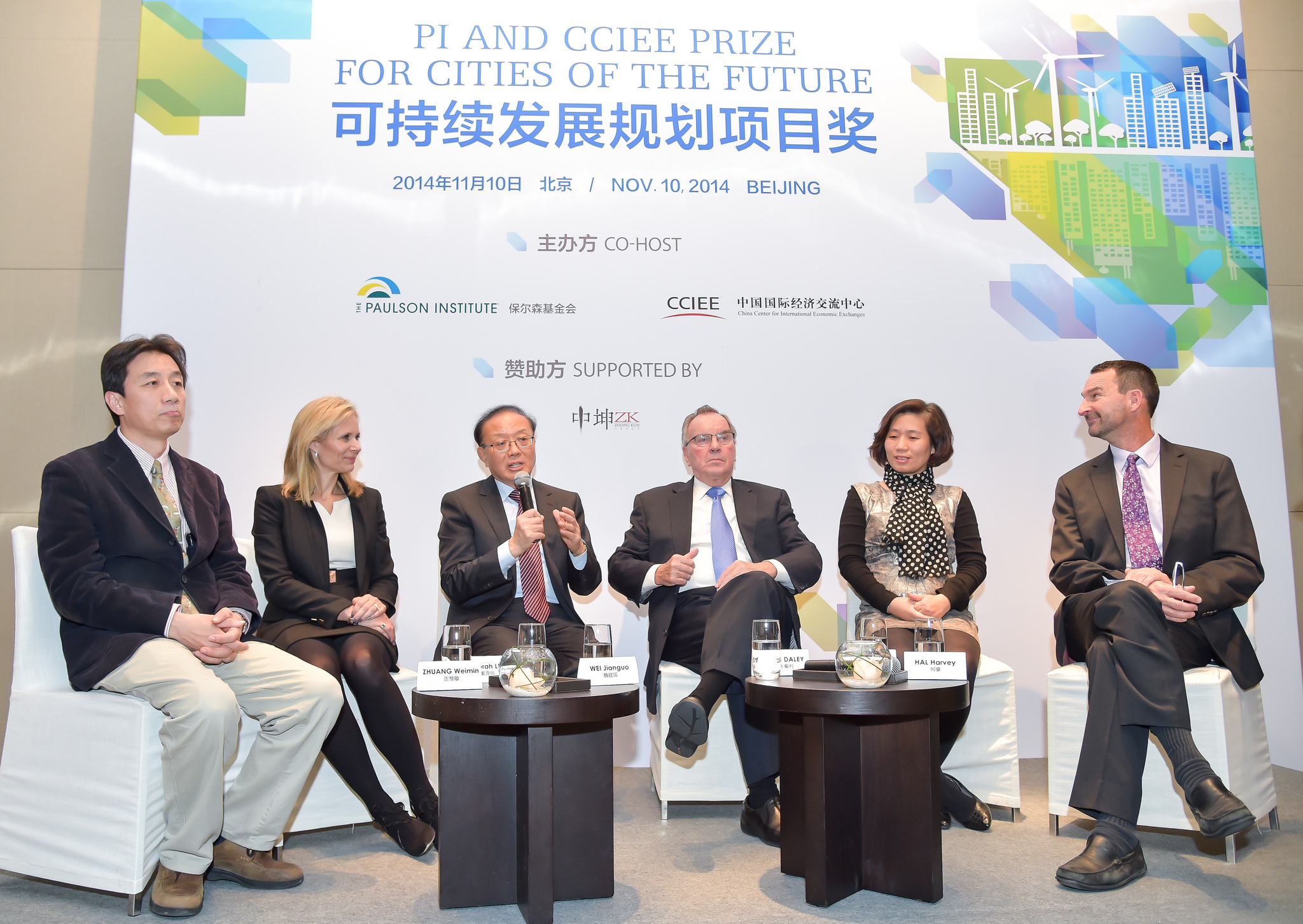On November 10, the Paulson Institute and the China Center for International Economic Exchanges (CCIEE) awarded the second annual Prize for Cities of the Future to the Shenzhen International Low-Carbon City project. Paulson Institute Chairman Henry M. Paulson, Jr., CCIEE Chairman Zeng Peiyan, and Prize Jury Committee Chairman Richard M. Daley presented the award to Shenzhen Mayor Xu Qin at an award ceremony held at the Park Hyatt in Beijing.
The Prize for Cities of the Future is awarded annually to a municipal-level sustainability project in China that offers a creative, effective and scalable solution to promoting sustainable development. The competition is designed to promote these efforts to a wide audience across China. It recognizes the achievements of outstanding Chinese municipalities selected by a jury of experts both from the United States and China.
Located in an underdeveloped neighborhood of Shenzhen, the Low-Carbon City project stands out from other urban projects in China because its planners took into careful consideration the people living in the district as they planned its rejuvenation. Instead of tearing down existing buildings and moving residents out to build new towers, the project made key investments to upgrade buildings and old factories, while improving the environment (such as cleaning up the local river). Those improvements are encouraging the organic development of high-end, low-carbon industrial projects and economic development that focuses on the needs of the local people.
“This prize provides an incentive for developing innovative, sustainable, and scalable solutions and promotes collaboration between China and the United States,” Mr. Paulson said at the ceremony, which was attended by over 80 leaders from government, business and the non-profit sector. “Finding sustainable and scalable solutions to urbanization challenges is a pressing need. The phenomenal urbanization rates in China – and around the world – will tax our ecosystem and threaten our way of life. To protect the world we want to leave to our children and grandchildren, we need to identify those model projects that can be replicated.”
Beating out submissions from across China, the Shenzhen International Low-Carbon City project was chosen by a jury of experts on urbanization and sustainability: former Mayor of Chicago Richard M. Daley; Carolina Barco, Senior Advisor, Inter-American Development Bank; Chen Huai, Dean of the Department of Urban and Rural Construction Economy of the China Academy of Social Sciences Graduate School; Hal Harvey, CEO, Energy Innovation; Huang Nubo, Chairman, Beijing Zhongkun Investment Group; Zhou Wenlian, Executive General Manager and Director, China Construction Engineering Design Group; and Zhuang Weimin, Dean of the School of Architecture at Tsinghua University.
Announcing the winner, Mr. Daley said, “Shenzhen’s project reflects a comprehensive and forward-thinking approach to the design, planning and implementation of a large low-carbon city.”






